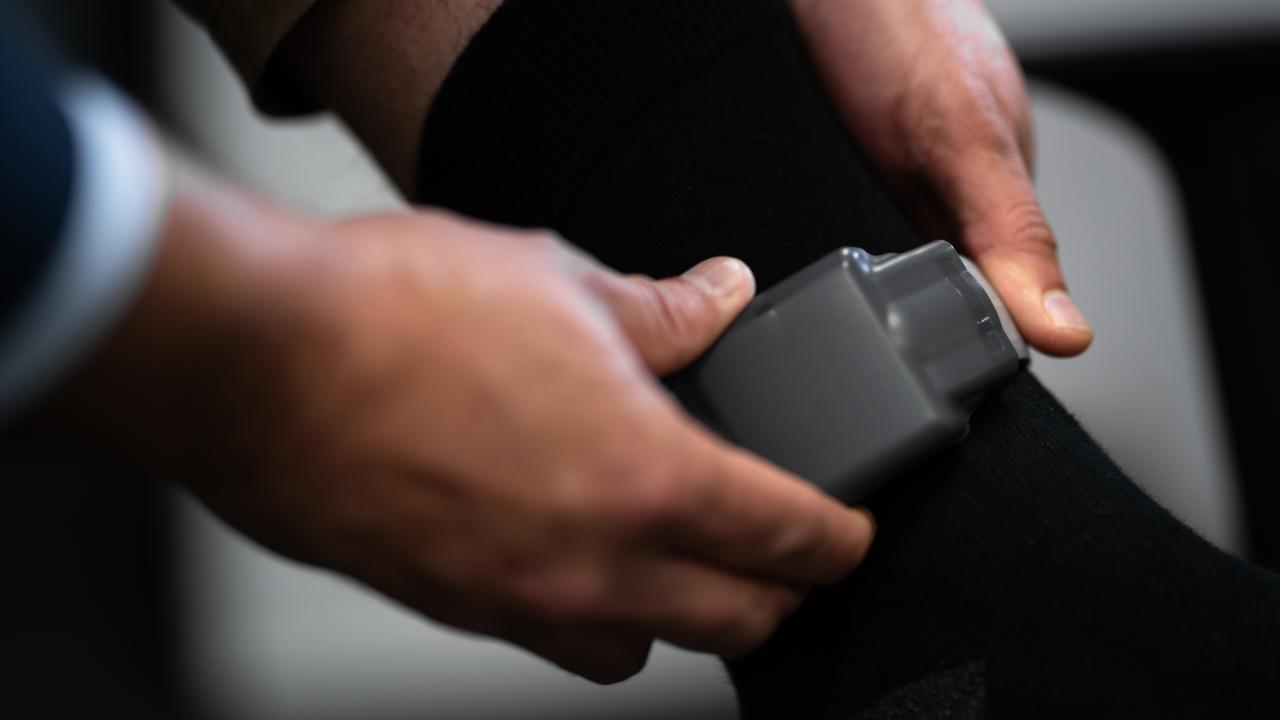
Private firms will be banned from providing electronic monitoring of bailed accused offenders after authorities in two states were left red faced.
Victoria has followed NSW with legislation to outlaw decision-makers from setting private electronic monitoring as a condition of bail.
Magistrates and judges can currently require offenders wear GPS trackers and pay providers for the service.
It led to a crisis when BailSafe Australia shut down in January without telling police and justice authorities in both states, leaving dozens of offenders in Victoria and NSW unmonitored.
"They didn't tell anyone across the justice system, the courts or Victoria Police - and that's just absolutely unacceptable," Victorian Premier Jacinta Allan told reporters on Wednesday.
"When that happened I was determined that we would ... stamp the use of private companies."
Ankle monitoring is typically reserved for offenders accused of serious crimes, with more cashed-up individuals offering to hire private firms to increase their prospects of being granted bail.
Some Supreme Court judges have criticised the practice for indirectly discriminating against poorer accused offenders.
The legislation brings Victoria into line with NSW after its parliament passed a ban in May that included a three-month transition period.
Several different private firms were involved in the monitoring of under 120 people on bail in NSW before its ban came into effect.
A Victorian review after the BailSafe debacle found private services were monitoring 14 offenders in the southern state.
Victorian Attorney-General Sonya Kilkenny said only one private bail monitoring company continued operating in the state.
The ban is part of the state government's second package of bail reforms and won't impact a state trial of electronic monitoring for repeat alleged youth offenders.
It will take effect once the legislation passes parliament and receives royal assent.
The latest round of bail reforms feature a new test for people accused of repeat, serious offending and a "second strike" rule for those charged with further offending.
Mr Battin said Victoria's bail system was broken and scoffed at the government's claim the changes would make Victoria's bail laws the "toughest" in the nation.
"Crime in Victoria is out of control," he said.
Victoria tightened bail laws in 2018 after James Gargasoulas drove into Melbourne's busy Bourke Street Mall in 2017 while on bail, killing six people and injuring dozens more.
An inquest into the death of Indigenous woman Veronica Nelson in 2020 found the changes were a "complete and unmitigated disaster", sparking a relaxation of laws in 2024.
Statistics from the year to the end of March showed offences jumped by more than 15 per cent when adjusted for population, with youth crime hitting its highest point on record.







